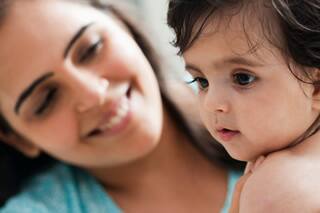Some mothers think that oral health is not that important when their kids are infants and toddlers because primary or milk teeth will fall out anyway. In fact, the condition of a child’s primary teeth can affect the development of their entire face, as well as playing an important role in chewing food and speaking clearly. Primary teeth help to shape your child’s facial features, and healthy ones will guide their permanent teeth into the correct position in the mouth.
So when it comes to healthy teeth, mouth and gums, it’s essential to start young, especially since you will be developing healthy habits that your child can continue with later on in life.
Because primary teeth have thinner enamel than permanent teeth, it is easy for cavities to develop. If your child suffers from childhood tooth decay, he or she will probably be in pain, irritable and experience difficulty eating and sleeping. Tooth decay in kids also leads to a lack of focus and concentration in school, which will inevitably affect grades.
By taking care of your child’s oral health at a young age, you can help prevent difficulties like speech or concentration problems, thus giving your child the confidence he or she needs for a bright future.
Here are some tips to get your child on the path to a bigger, healthy smile and a happier life:
 From birth to 12 months
From birth to 12 months
Use a clean, soft damp cloth and wipe your baby’s gums twice daily. Once the first teeth arrive, use a Colgate Kids toothbrush and clean his teeth once daily. Make sure your baby drinks their milk or juice before getting their teeth brushed.
From 1 to 3 years
Schedule a visit to the dentist for your child every year. Begin using fluoridated toothpaste when your child turns 2 years old, using only a dab (about the size of your child's pinky fingernail). Be careful that toothpaste is also spat out, and not swallowed. Wean your child off the pacifying as this can alter the shape of their bite. As soon as two teeth touch each other, you should floss between the teeth once a day. You can use regular floss or special plastic floss holders. You can even make it fun by turning this habit into a game or song.
From 3 to 5 years
At this stage, you should brush your child's teeth. It's okay to give him or her a turn, but afterwards, you should always brush their teeth a second time. Most children won't be able to brush their teeth well on their own until they are about 8 years old. Make it a routine to brush your child's teeth for two minutes in the morning and before bed. Be a good role model by brushing your own teeth while your child brushes his or hers. Use fluoride toothpaste, as teeth that are treated with fluoride have extra protection against cavities.






